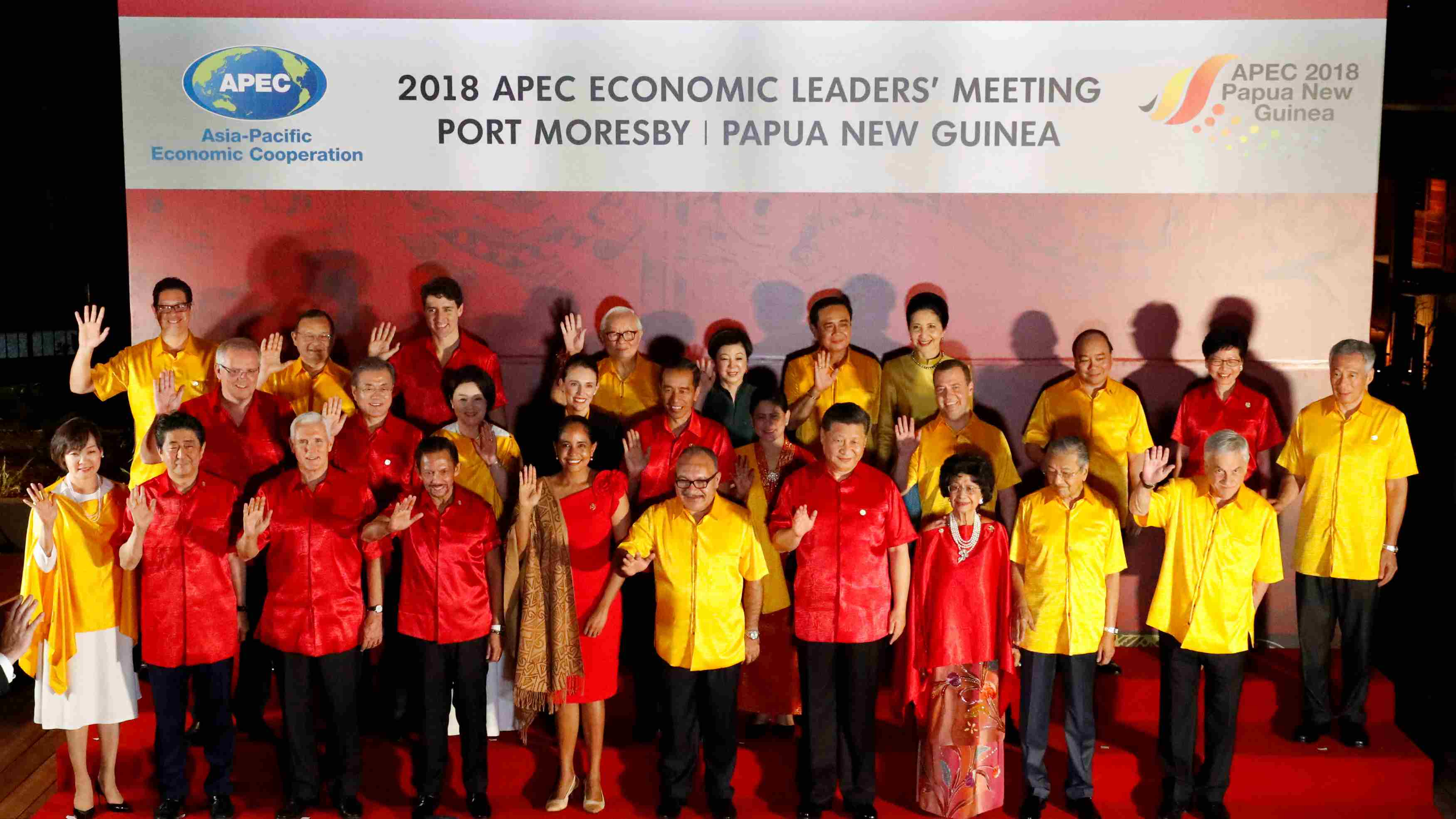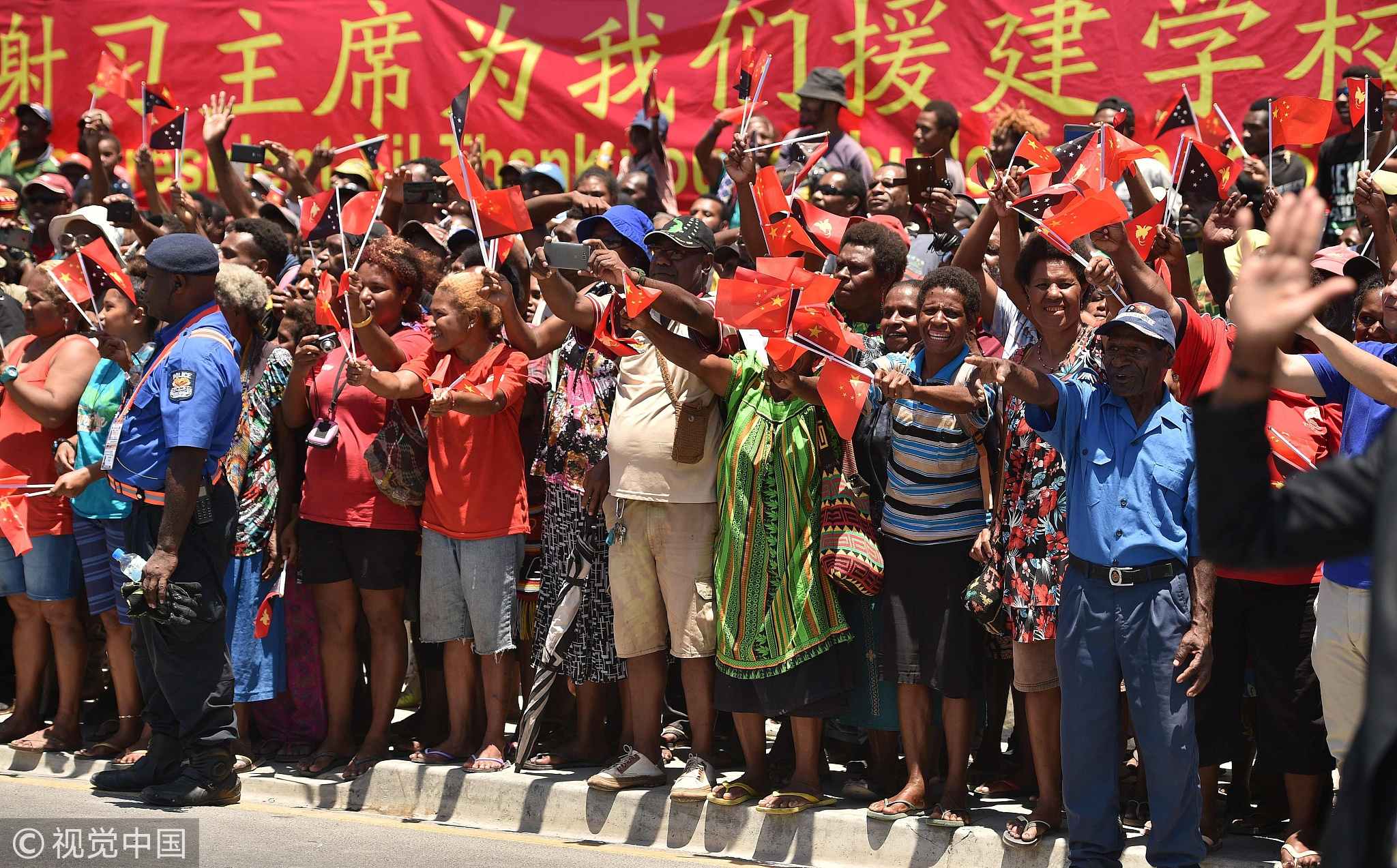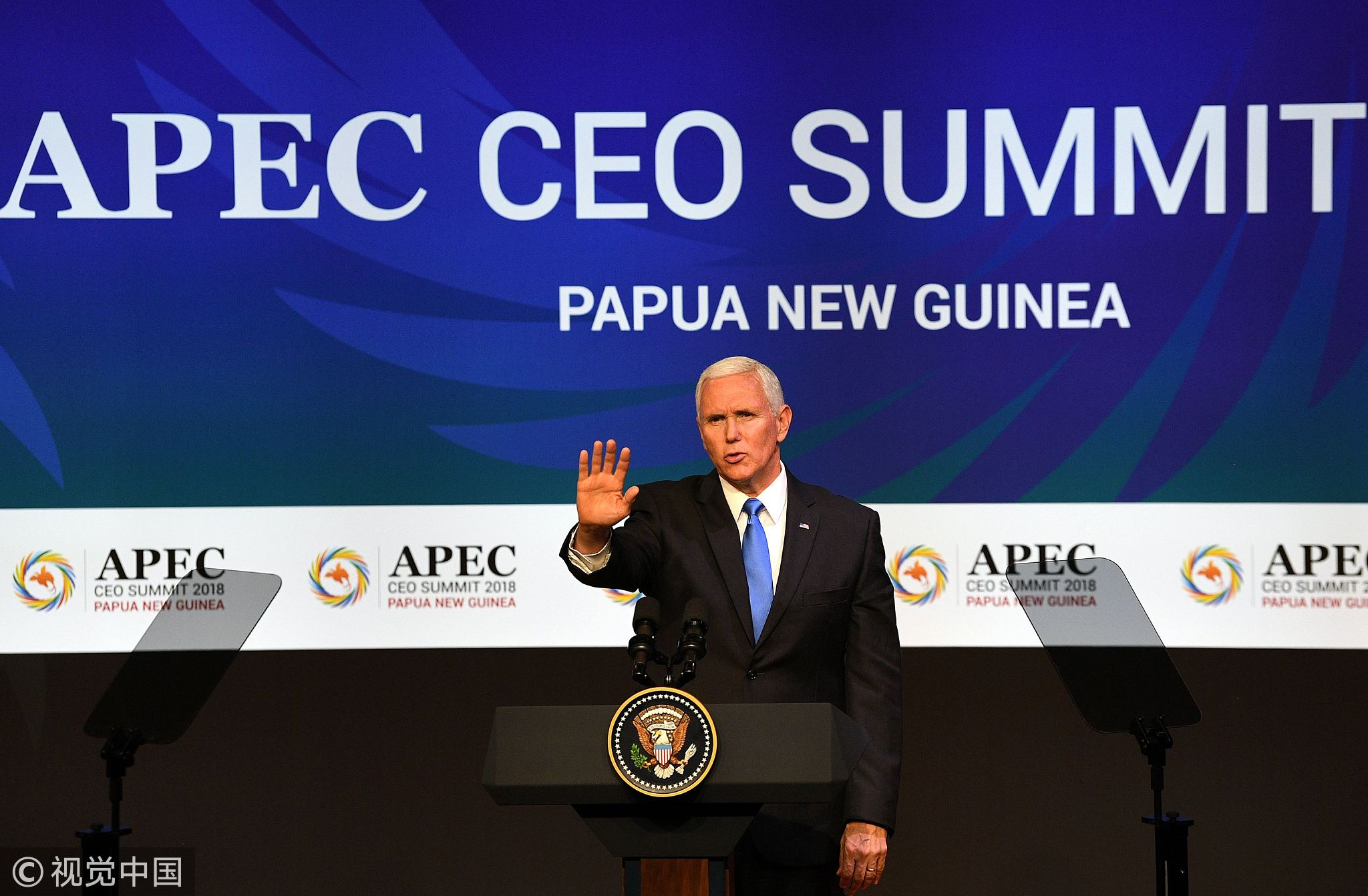
Opinions
14:46, 18-Nov-2018
Opinion: China aims to promote common Asia-Pacific prosperity amid uncertainties
Updated
14:25, 21-Nov-2018
Li Qingsi

Editor's note: Li Qingsi is the executive director at the Center for American Studies at Renmin University of China. The article reflects the author's opinion, and not necessarily the views of CGTN.
Chinese President Xi Jinping stressed the importance of promoting common Asia-Pacific prosperity at this year's APEC Economic Leaders' Meeting on Sunday, gaining widespread attention from inside and outside the conference.
In his speech, President Xi pointed out the difficulties in further advancing economic globalization amid rising trade protectionism and the unilateralist sentiments in some Western countries, which have already brought some serious consequences to world economic growth.
"Protectionism and unilateralism are resurfacing. The multilateral trading system is under assault. The global economic environment is fraught with risks and uncertainties," Xi warned.
Experiences in the past three decades have proven that only through openness to the outside world, tolerance to different systems, transparency, coordination and cooperation can regional countries realize their respective goals of economic development.
"We need to advance economic integration in our region so as to build an open economy in the Asia-Pacific. We should continue to promote trade and investment liberalization and facilitation," President Xi said in his speech.
As the largest developing country, China has made enormous progress through reform and opening up. After four decades of rapid growth, China has moved to the second largest economy in the world. The fundamental reason is the country's open policy on the basis of equality and mutual beneficial spirit.

Local people wave as President Xi arrives for his visit to the Butuka Academy school in Port Moresby, Papua New Guinea, November 16, 2018. /VCG Photo
Local people wave as President Xi arrives for his visit to the Butuka Academy school in Port Moresby, Papua New Guinea, November 16, 2018. /VCG Photo
At the 40th anniversary of China's reform and opening-up, the Chinese government pledged to be more open to the world. The first China International Import Expo (CIIE), held in Shanghai earlier this month, attracted more than 3,600 enterprises from 172 countries, regions and international organizations.
Business deals signed during the expo totaled 57.8 billion US dollars - convincing evidence of the success of China's reform and opening-up policy and the country's determination to further open its economy.
The CIIE is also evidence of China's contribution to global economic development. China's trade has contributed to more than 30 percent of global economic growth. The country has been the largest trade partner to more than 170 countries and regions, including all the US' allies in the Asia-Pacific region.
In other words, without Chinese trade contributions, many countries and regions could not have realized their growth rate at all, because most advanced economies have lowered their growth rate and reduced import accordingly.
In the meantime, China's economic development may not sustain without a prosperous Asia-Pacific economic community, since China and the Asia-Pacific are not only geographically connected but also bound together by destiny.

US Vice President Mike Pence delivers his keynote speech at the APEC CEO Summit in Port Moresby, Papua New Guinea, November 17, 2018. /VCG Photo
US Vice President Mike Pence delivers his keynote speech at the APEC CEO Summit in Port Moresby, Papua New Guinea, November 17, 2018. /VCG Photo
As a leading economic forum in the Asia-Pacific region, APEC should play a more important role in promoting the common interests among its members. However, anti-globalization sentiments, particularly from the West, have made cooperation more difficult among trading partners. For instance, US Vice President Mike Pence earlier pressured Southeast Asian countries into picking sides between China and the US. In this context, the future of APEC will certainly face more challenges.
Therefore, President Xi pointed out in his Sunday speech that “As leaders of the Asia-Pacific, we share a common responsibility to chart the long-term development course for APEC and draw up a post-2020 vision. We should follow the underlying trend of economic globalization and prevail over difficulties as they arise. We should remain committed to our goal of economic integration in the region and work toward the direction of an open global economy. We should keep the momentum of Asia-Pacific cooperation and steadily bring it to a higher level.”
Without a vision, there can be no aspiration for a common future of prosperity and stability. Leaders of the region should work together to overcome difficulties of all kinds and fight against trade protectionism, unilateralism and anti-globalization.
With the development of digital technology, countries have to rely on each other more than ever for economic growth. In recent years, the role of technology has dramatically changed not only our daily lives but also domestic and international economic structure and trade patterns. No country can afford to close its door. Only through opening-up and cooperation can a country maintain its economic vitality.
As the world's two largest economies and members of APEC, China and the US should play a leading role under the framework of APEC. Unfortunately, US President Donald Trump unilaterally launched a trade war against the world, particularly China, and Vice President Pence repeatedly fired at China in his speeches. Despite all the difficulties and uncertainties, China is still trying and will continue to try its best to make contributions to APEC and promote Asia-Pacific common prosperity.
(Cover photo: Chinese President Xi Jinping (4th R, front) poses for a group photo before a banquet held for leaders and representatives attending the APEC Economic Leaders' Meeting and their spouses in Port Moresby, Papua New Guinea, on November 17, 2018. /Xinhua Photo)
(If you want to contribute and have specific expertise, contact us at opinions@cgtn.com.)

SITEMAP
Copyright © 2018 CGTN. Beijing ICP prepared NO.16065310-3
Copyright © 2018 CGTN. Beijing ICP prepared NO.16065310-3